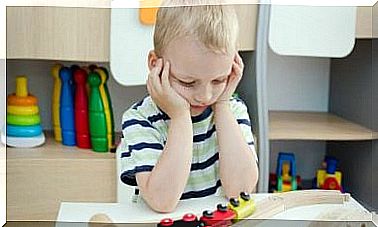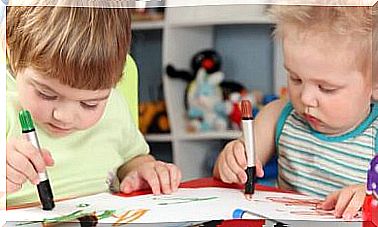If Your Kids Fight All The Time, Try These Disciplinary Tools

Healthy sibling relationships require parenting and reflective care, even under the best of circumstances. Tensions between siblings can begin to reach new and unpleasant levels – and so disciplinary tools become necessary.
Disciplinary Tools
These disciplinary tools are easy to use and can help siblings understand each other better and ease tensions at home. These are tools that can be used whenever you want.
Create a Jar of Marbles for the Family
Sibling tensions often increase when children compete with each other for parental attention or other needs. With a jar of marbles, children will work together for a common goal.

To do this, you need to start by setting goals for the children (sharing, using kind words, showing respect, offering help, etc.) and a family reward, such as a pizza night, watching a movie of the child’s choice. as a family or eat dessert twice.
Every time a child is seen exhibiting objective behavior, congratulate them and place a marble in the family pot. Encourage the children to “inform” each other by telling them when a sibling wins a marble, but don’t let them report bad behavior or it will turn into a war at home.
When children start fighting, instead of scolding them, remind them that you are looking for kind behaviors so they can get the reward.
When the pot is full, everyone will receive the prize. Although it may take a few days to let go of old habits, children will soon find that it pays more to be kind than to argue.
Use timers for family exchanges
Doesn’t it seem like kids always want the same toy at the same time? While this can be frustrating, it’s also a great learning time. Explain that everyone can use the family’s toys, so you need to be kind and take turns. Then use a timer to ensure each child spends the same amount of time with the toy.
When parents monitor the relay, they are often distracted and forget that the first child must share the toy at the promised time.
The timer keeps everyone on track and eventually the children can learn who is to turn on their own. Visual timers, like hourglasses, work best with young children who may not yet know the numbers.
Modeling self-defense with internal dialogue, one of the best disciplinary tools
When children start fighting, parents often step in to resolve disputes. While this approach stops the fight, it doesn’t teach the little ones how to deal with the problem, and the next time a conflict arises, they’ll likely end up fighting again.
It can be much more helpful to guide children on how to handle disagreements using self-talk. In this sense, an adult will give suggestions on how to handle a “thinking out loud” situation.
For example, if your daughter complains that she wants to use the pens that her brother has, ask, “If you want the pen, ask your brother, ‘Can I have the yellow pen, please?’” Don’t speak for the child. This will limit fights between siblings and children.

The direct instruction “If you want the pen, then ask for it” often leads to arguments. Self-talk puts an idea out into the world, but lets your child decide whether to use it.
Build daily physical activity
To help keep tensions down, you need to ensure that children get a daily dose of physical activity. In addition to being good for your children’s bodies, exercise also helps relieve tension while improving their mood. So make sure you find ways to allow your kids to expend energy every day.
Keep a daily schedule
While being cooped up at home can make the days seem long and lazy, unfortunately, as we all know, it’s not a vacation. You’re probably tired of hearing about it, but to help kids get through the day, it ‘s best to stick to a daily schedule or routine.
To do this, you need to make sure they are eating healthy foods at regular times. It’s also important that they have some sleep routines. These routines help bodies feel healthy – and are an important component of a good mood: everyone gets grumpier when they’re tired and hungry.
We hope that you will put these disciplinary tools into practice in your home and see immediate positive results in your children’s behavior.









